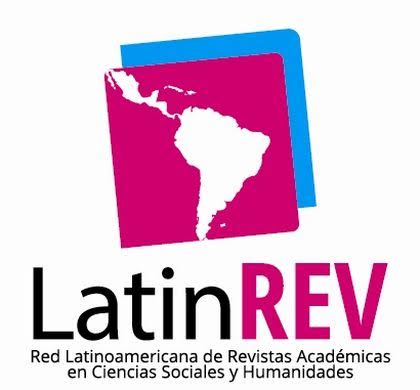Bringing Out the Word and Restoring Worlds
Conversations with Mapuche Women about Care, Childhood, and Violence
DOI:
https://doi.org/10.32870/punto.v11i21.254Keywords:
Mapuche people, care, childhood, woman, territorial conflictAbstract
From anthropology, psychosocial trauma is understood as an experience of suffering that affects not only individuals but also communities, relationships, and social structures. Anthropology broadens the perspective to include historical, political, and cultural factors. This article reflects on care strategies that aim to collectively restore the damage caused after violent events, with particular attention to the levels of impact on Mapuche children.
References
Agamben, G. (1998). Homo sacer. El poder soberano y la nuda vida. Trad. de A. G. Cuspinera, PreTextos.
Bleger, M. V. (2018). Consejos maternos que hablan memoria: conversaciones con mujeres de la comunidad mapuche Lago Rosario. Punto Cunorte, (7), Julio-Diciembre, 110-128.
Bleger, M. V. (2021). Escalas narrativas: la espacialización de la memoria en territorio Mapuche. Tabula Rasa, (39), 241-258. https://doi.org/10.25058/20112742.n39.11
Bleger (2023) Atravesar el viento blanco: recuperar territorio en clave femenina. (Historias de desujeción de mujeres mapuche). Tesis de Doctorado. Universidad de Buenos Aires
Briones, C. (1998b). (Meta)cultura del estado-nación y estado de la (meta) cultura: Repensando las identidades indígenas y antropológicas en tiempos de post-estatalidad. Serie Antropología 244: 56.
Briones, C. & Delrio, W. (2002). Patria sí, Colonias también. Estrategias diferenciales de radicación de indígenas en Pampa y Patagonia (1885-1900). En A. Teruel, M. Lacarrieu & O. Jerez (comps.), Fronteras, ciudades y estados, Tomo I. (pp. 45-78) Alción Editora.
Carsten, J. (2000). Cultures of relatedness: New approaches to the study of kinship. Cambridge University Press.
Connerton, P. (2008). Seven types of forgetting. Memory Studies, 1(1): 59–71. Doi:
https://doi.org/10.1177/1750698007083889
Das, V. (1995). Critical events: An anthropological perspective on contemporary India. Delhi. Oxford University Press.
Das, V. (2008). Sujetos del dolor, agentes de dignidad. En Ortega, F. (Ed.). Universidad Nacional de Colombia. Facultad de Ciencias Humanas : Pontificia Universidad Javeriana. Instituto Pensar, pp. 568.
De la Cadena, M. (2019). Protestando desde lo incomún. En R. Silva Santisteban (Ed.), Mujeres Indígenas frente al Cambio Climático, (pp. 35-48). IWGIA
Dwyer, L. (2009). A Politics of Silences: Violence, Memory, and Treacherous Speech in Post-1965 Bali. En A. Hinton, K. O’Neill, N. Whitehead, J. Fair & L. Payne (Ed.) Genocide:Truth, Memory, and Representation (pp. 113-146). Duke University Press. Doi: https://doi.org/10.1515/9780822392361-006
Escolar, D. (2007). Los dones étnicos de la Nación. Identidades huarpe y modos de producción de soberanía en Argentina. Prometeo.
Navarro Floria, P. (2007). La “República posible” conquista el “desierto”. La mirada del reformismo liberal sobre los Territorios del Sur argentino. En Navarro Floria, P. (coord.), Paisajes del progreso. La resignificación de la Patagonia norte, 1880-1916. (pp.191- 234). Educo.
Pita, M. V. (2010). Formas de vivir y formas de morir: el activismo contra la violencia policial. Editores del Puerto. Centro de Estudios Legales y Sociales - CELS. Recuperado en: https://www.cels.org.ar/web/wp-content/uploads/2016/06/REVES-2010-Formas-de- morir-y-formas-de-vivir-Pita-Maria-Victoria.pdf
Ramos, A. M. (2005). Trayectorias de Aboriginalidad en las comunidades mapuche del Noroeste de Chubut (1990-2003). Tesis de Doctorado, Universidad de Buenos Aires. Facultad de Filosofía y Letras. Disponible en: http://repositorio.filo.uba.ar/handle/filodigital/1263
Ramos, A. M. (2010). Los pliegues del linaje. Memorias y políticas mapuches-tehuelches en contextos de desplazamiento. Eudeba.
Ramos, A. M. (2015). Cuando la memoria es un proyecto de restauración: el potencial relacional y oposicional de conectar experiencias. En Ruiz, M. O. (Ed.). Historias y memorias. Diálogos desde una perspectiva interdisciplinaria. Núcleo de Ciencias Sociales y Humanidades de la Universidad de La Frontera.
Ribeiro, D. (2017). O que é Lugar de Fala? Editora Letramento.
Rodríguez, M. (2010). De la “extinción” a la autoafirmación: procesos de visibilización de la Comunidad Tehuelche Camusu Aike (provincia de Santa Cruz, Argentina). Tesis Doctoral. Georgetown University.
Rodríguez, M; C. San Martín & F. Nahuelquir (2016). Imágenes, silencios y borraduras: Memorias mapuches y tehuelches resignificadas. En Ramos, A., C. Crespo & A. Tozzini (comp.) Memorias en lucha. Recuerdos y silencios en contextos de subordinación y alteridad, (pp: 1-32). Editorial Universidad Nacional de Río Negro.
Salomon Tarquini, C. (2010). Largas noches en La Pampa. Itinerarios y resistencias de la población indígena (1876-1976). Prometeo.
Trouillot, M. (1995). Silencing the Past. Power and the Production of History. Boston: Beacon Press
Kirmayer, A (1996)"Cultural Influences on the Response to Trauma and Disaster".
Williams, B. (1991). Stain on my Name, War in my Veins: Guayana and the Politics of Cultural Struggle. Duke University Press.
Downloads
Published
How to Cite
Issue
Section
License
Copyright (c) 2025 Mariel Bleger

This work is licensed under a Creative Commons Attribution-NonCommercial 4.0 International License.
Los autores/as que publiquen en esta revista aceptan las siguientes condiciones:
De acuerdo con la legislación de derechos de autor, Punto Cunorte reconoce y respeta el derecho moral de los autores, así como la titularidad del derecho patrimonial. Bajo la iniciativa de Budapest de acceso abierto, el autor otorga derechos conexos a la Universidad de Guadalajara, al Centro Universitario del Norte y a la revista Punto Cunorte para su difusión en acceso abierto. Punto Cunorte no realiza cargos a los autores por enviar y procesar artículos para su publicación.
Los autores/as pueden realizar otros acuerdos contractuales independientes y adicionales para la distribución no exclusiva de la versión del artículo publicado en Punto Cunorte (por ejemplo incluirlo en un repositorio institucional o publicarlo en un libro) siempre que indiquen claramente que el trabajo se publicó por primera vez en Punto Cunorte.
Esta obra está bajo una Licencia Creative Commons Atribución-NoComercial 4.0 Internacional.









